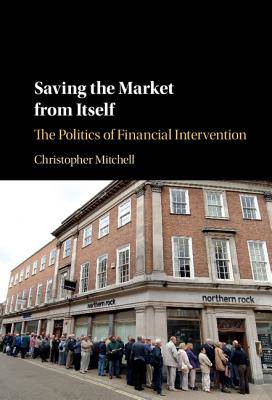
- Afhalen na 1 uur in een winkel met voorraad
- Gratis thuislevering in België vanaf € 30
- Ruim aanbod met 7 miljoen producten
- Afhalen na 1 uur in een winkel met voorraad
- Gratis thuislevering in België vanaf € 30
- Ruim aanbod met 7 miljoen producten
Zoeken
Saving the Market from Itself
The Politics of Financial Intervention
Christopher Mitchell
Hardcover | Engels
€ 172,95
+ 345 punten
Omschrijving
The 2007-9 financial crisis threatened economic disaster on a scale not seen since the Great Depression, but rapid state action prevented the widely feared devastation. The German response was considerably more generous to banks than the American or British bailouts. Drawing on interviews and primary sources in government, private firms, and media, Mitchell explains how the structure of national financial systems and interbank relationships produced extensive private rescues and pressure on different states. Mitchell explores the different responses and results in Germany, the UK and the US using a combination of detailed case study analyses of the three countries' responses to the crisis and a quantitative analysis of patterns of state responses to financial crises. This book will be essential reading for scholars and advanced students of political economy, comparative politics, economic sociology, economics, and public policy.
Specificaties
Betrokkenen
- Auteur(s):
- Uitgeverij:
Inhoud
- Aantal bladzijden:
- 258
- Taal:
- Engels
Eigenschappen
- Productcode (EAN):
- 9781107159235
- Verschijningsdatum:
- 1/12/2016
- Uitvoering:
- Hardcover
- Formaat:
- Genaaid
- Afmetingen:
- 152 mm x 229 mm
- Gewicht:
- 512 g

Alleen bij Standaard Boekhandel
+ 345 punten op je klantenkaart van Standaard Boekhandel
Beoordelingen
We publiceren alleen reviews die voldoen aan de voorwaarden voor reviews. Bekijk onze voorwaarden voor reviews.











